Understanding Detroit Diesel Gaskets for Optimal Performance
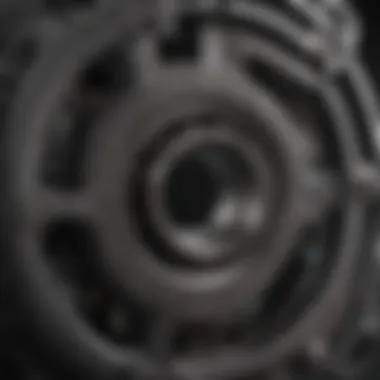
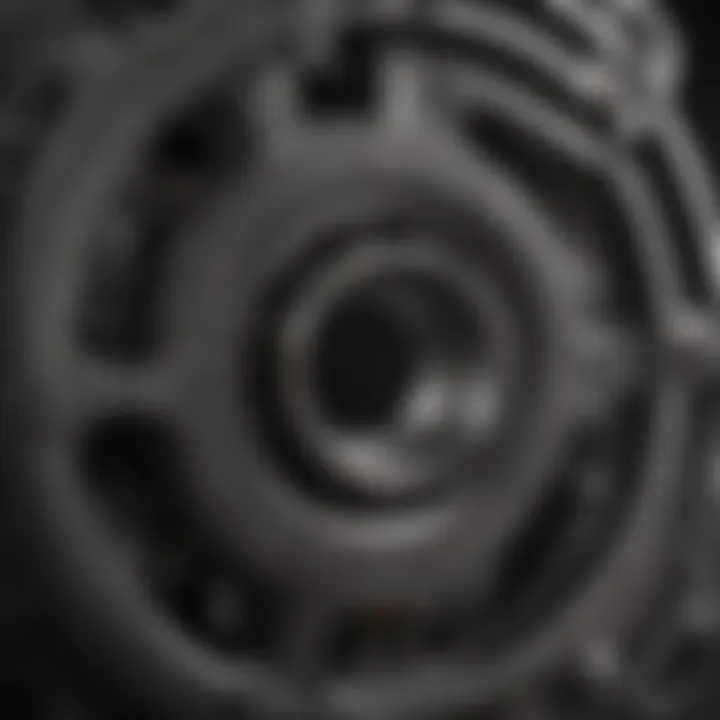
Intro
Understanding Detroit Diesel gaskets is crucial for comprehending the performance and maintenance of diesel engines. These components, often overlooked, play a significant role in ensuring the seamless function of engines, especially within agricultural settings. A gasket serves as a seal between two or more surfaces, preventing leakage and ensuring optimal performance. With a focused exploration of their construction, purpose, and best practices, this article aims to provide valuable insights for both professionals and enthusiasts in the agricultural field.
Topic Overview
Definition of Key Terms
Before delving deeper, it is essential to define some key terms related to gaskets:
- Gasket: A gasket is a mechanical seal that fills the space between two or more mating surfaces, ensuring a leak-proof fit.
- Compression: The process by which a gasket is compressed, leading to its effectiveness in sealing.
- Material: The various substances used to construct gaskets, impacting their durability and performance.
Understanding these terms lays a foundation for recognizing the importance of quality gaskets in diesel engines.
Relevance in Agriculture, Horticulture, and Agronomy
In the fields of agriculture, horticulture, and agronomy, diesel engines are widely utilized in machinery such as tractors, combines, and irrigation pumps. The reliance on these engines makes the role of gaskets paramount. Durable and well-installed gaskets can enhance engine efficiency, reduce fuel consumption, and extend the lifespan of machinery. This directly impacts productivity and can help mitigate downtime or costly repairs. Given the high operational demands in agriculture, selecting the right gasket is not just a matter of performance, but also an economic consideration.
Current Trends and Innovations
Recent Advancements in the Field
The advancements in gasket technology have been significant. Recent innovations focus on creating gaskets that can withstand higher temperatures and pressures, essential for the evolving diesel engine designs. For example, manufacturers are now using advanced materials such as composite and metal-reinforced gaskets, which provide greater resilience against wear and tear. These materials are specifically engineered to maintain their sealing capabilities under extreme conditions commonly experienced in agricultural applications.
Emerging Technologies and Practices
Emerging technologies, such as computer-aided design (CAD), play a crucial part in gasket development. CAD allows manufacturers to optimize the design and fit of gaskets, thus increasing their reliability and longevity. Additionally, practices like regular inspections and proactive replacements of gaskets based on monitoring data are quickly becoming industry standards. Using technology for predictive maintenance can lead to significant cost savings and operational efficiency.
Practical Applications
Step-by-Step Guides or How-Tos
- Selecting the Right Gasket: Determine the specifications of your diesel engine. Consider the temperature range, pressure, and type of fluids involved.
- Installation: Ensure that both surfaces are clean and free of debris. Apply a gasket sealant if recommended by the manufacturer.
- Compression: Properly torque the fasteners in the recommended sequence to ensure even pressure distribution on the gasket.
Tips and Best Practices for Implementation
- Always follow the manufacturer's guidelines for installation and maintenance.
- Inspect gaskets regularly to identify signs of wear and potential failure.
- Keep a stock of commonly used gaskets to reduce downtime during maintenance.
"Selecting the right gasket is essential for optimal engine performance and longevity."
In summary, an informed approach toward understanding and utilizing Detroit Diesel gaskets can significantly impact the effectiveness of diesel engines in agriculture. By focusing on proper selection, installation, and maintenance, professionals can enhance their operational efficiencies and ensure the longevity of their equipment.
Foreword to Detroit Diesel Gaskets
Detroit Diesel gaskets serve a vital function within diesel engines, acting as seals that prevent leaks and ensure optimal performance. Their role might often be overlooked, yet gaskets are crucial in maintaining the integrity of the engine system. Without them, engines would operate inefficiently and could suffer from severe damage due to fluid leaks.
Understanding Gaskets in Diesel Engines
Gaskets are mechanical components made from various materials and are strategically positioned between two or more surfaces in an engine. In diesel engines, these surfaces can include cylinder heads, oil pans, and exhaust systems. When installed correctly, gaskets create a tight seal that prevents engine fluids—such as oil and coolant—from leaking out or mixing with other fluids. This sealing capability is essential for sustaining the engine's pressure and temperature levels, which directly affects its performance and longevity.
In diesel engines, the environmental factors and operational parameters can be demanding. Gaskets must withstand high pressures and temperatures. Therefore, understanding the various types of gaskets and their specific functions is fundamental for anyone involved in maintenance or repair work.
Importance in Engine Performance
The performance of a diesel engine relies significantly on the quality and condition of its gaskets. If a gasket fails, it can lead to serious repercussions, such as loss of power, increased emissions, and even engine failure. Typical issues caused by faulty gaskets include overheating due to coolant leaks and oil contamination.
Moreover, the right gaskets enhance fuel efficiency. Proper sealing ensures that the engine runs smoothly and uses fuel optimally. As such, regular inspection and maintenance of gaskets can prevent costly repairs and extend the life of the engine.
"Regular maintenance of Diesel gaskets can prevent major mechanical issues and safeguard engine performance."
In summary, Detroit Diesel gaskets are crucial components. They provide essential sealing functions that maintain engine performance. Understanding their role and importance helps mechanics and engine professionals make informed decisions about maintenance and replacement, ultimately supporting the longevity and efficiency of diesel engines.
Types of Detroit Diesel Gaskets
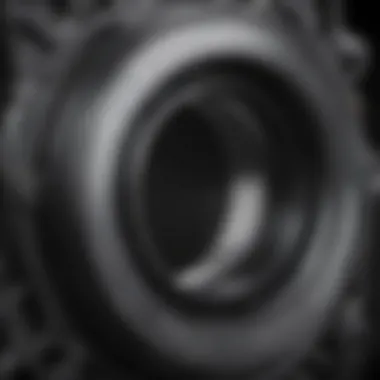
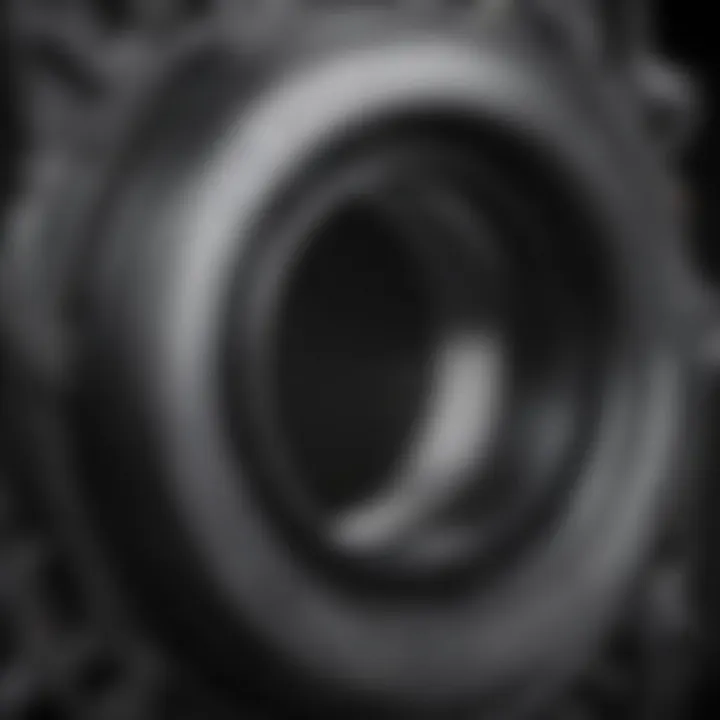
Understanding the different types of Detroit Diesel gaskets is crucial for anyone involved in diesel engine maintenance or repair. Each gasket type serves a specific function and plays a vital role in the overall efficiency and durability of the engine. Knowledge of these types can help mechanics and engineers make informed decisions when replacing or installing new gaskets, ensuring optimal performance and longevity of the engine.
Cylinder Head Gaskets
Cylinder head gaskets are pivotal in sealing the joint between the engine block and the cylinder head. This gasket prevents the leakage of coolant and oil, which can lead to severe engine damage. A proper seal allows for the necessary compression within the combustion chamber, resulting in efficient engine operation.
The material composition and design of cylinder head gaskets vary significantly. They are often made of metal or composite materials to withstand the high temperatures and pressures commonly found in diesel engines. When installing a new cylinder head gasket, it is crucial to consider the torque specifications and the surface condition of both the engine block and the cylinder head. Any imperfections can lead to improper sealing and potentially catastrophic failure.
Oil Pan Gaskets
Oil pan gaskets are essential for sealing the oil pan to the engine block. They serve to contain the engine oil, thus preventing leaks that could lead to a decline in oil levels and consequently affect engine lubrication. Proper lubrication is vital for reducing wear and ensuring that engine components operate smoothly, thereby extending the life of the engine.
When selecting an oil pan gasket, it’s critical to choose one that can endure temperature fluctuations and resist oil degradation. Common materials include rubber and cork composites. During the installation process, ensure a clean surface and even tightening of the fasteners to prevent leaks from forming.
Exhaust Gaskets
Exhaust gaskets play a critical role in sealing the connection between the exhaust manifold and the engine. Their main purpose is to prevent exhaust gases from escaping the exhaust system and entering other parts of the engine, which could disrupt performance and cause harmful emissions.
These gaskets are typically made of materials that can withstand high temperatures and corrosive gases, often with a metal composite design. It’s essential to replace exhaust gaskets during routine engine maintenance or any time the exhaust manifold is removed. The integrity of exhaust gaskets contributes significantly to overall exhaust flow efficiency and engine performance.
In summary, understanding the types and functions of Detroit Diesel gaskets is essential for anyone working on diesel engines. Each gasket type plays a fundamental role in preventing leaks, ensuring proper engine performance, and extending engine life.
Materials Used in Gasket Manufacturing
Understanding the materials used in gasket manufacturing is crucial for the performance and reliability of Detroit Diesel engines. The success of a gasket relies heavily on the properties of the materials chosen for its construction. This section delves into the types of materials commonly used, their advantages, and how they impact gasket performance.
Metallic Gaskets
Metallic gaskets play a significant role in high-temperature and high-pressure applications. They are typically made from robust metals such as stainless steel, aluminum, or copper. These metals are selected for their strength and ability to withstand extreme conditions. The primary advantage of metallic gaskets lies in their durability. They can endure harsher operating conditions compared to non-metallic alternatives, making them ideal for critical engine components.
However, they require careful installation. Improper fitting can lead to leaks, which can severely impact engine performance. Additionally, one must consider the compatibility of the metal with the fluids and gases it will encounter. This ensures long-lasting performance without significant wear.
Non-Metallic Gaskets
Non-metallic gaskets are commonly made from materials like rubber, cork, or fiber. These materials are often used in applications where the pressures and temperatures are not as extreme as in metal gaskets. The benefit of non-metallic gaskets is their ability to provide effective sealing in less demanding environments. They are also flexible, making them easier to install and more forgiving during assembly.
Nonetheless, non-metallic gaskets have limitations. They may not withstand the same rigorous conditions as metallic types and may degrade faster when exposed to heat or certain chemicals. Choosing the right type of non-metallic gasket is crucial to ensure conditions remain optimal for engine operation.
Composite Materials
Composite gaskets blend properties of metallic and non-metallic materials. These gaskets often include a metal core coated with non-metallic materials, providing a balance of strength and flexibility. The unique combination allows them to perform well under a variety of conditions, making them suitable for diverse applications.
The benefit of composite gaskets is their adaptability. They often offer better sealing properties than metallic gaskets alone and better heat resistance compared to many non-metallic gaskets.
However, one must ensure that the selected composite material can withstand the specific requirements of the engine environment. This includes considering temperature, pressure, and the types of fluids involved.
In summary, choosing the right materials for gaskets is fundamental in ensuring the efficiency and longevity of Detroit Diesel engines. Understanding the properties of metallic, non-metallic, and composite gaskets enables better decision-making, leading to improved engine performance, reliability, and lower maintenance costs.
Installation of Detroit Diesel Gaskets
The installation of Detroit Diesel gaskets is a critical procedure that directly influences the engine's performance and reliability. Gaskets serve as sealing components, preventing leaks between various engine parts. Proper installation ensures that the engine maintains optimum pressure and temperature, which is essential for efficiency and longevity. This section highlights key considerations, methods, and practices associated with the installation of diesel gaskets.
Pre-Installation Checks
Before installing a gasket, it is crucial to perform several pre-installation checks to ensure that the components are compatible and in good condition. These checks include:
- Gasket Inspection: Examine the gasket for any visible damage or defects. Look for warping, tears, or surface blemishes that could affect its sealing capabilities.
- Surface Preparation: Both the engine surfaces and the gasket itself must be clean and free of debris. Old gasket material or contaminants can compromise the seal. Use a scraper or wire brush to clean the surfaces carefully.
- Compatibility Verification: Confirm that the gasket type is suitable for the engine model. Mismatched gaskets can lead to failure during operation.
Taking the time to conduct these checks prevents future complications and ensures a successful installation.
Step-by-Step Installation Process
The installation of Detroit Diesel gaskets involves several precise steps. Following these ensures a secure and effective seal. The key steps include:
- Align the Gasket: Place the gasket on the engine block, aligning it with bolt holes. If dealing with a cylinder head gasket, ensure correct orientation.
- Finger Tighten Bolts: Insert bolts and tighten them by hand until snug. This ensures the gasket is seated properly without over-compressing it.
- Sequence Tightening: Use a torque wrench to tighten bolts in the manufacturer’s specified sequence. This is crucial for distributing pressure evenly and preventing leaks.
- Final Checks: After tightening, double-check torque specifications to ensure they meet the required standards. This secures the gasket and enhances performance.
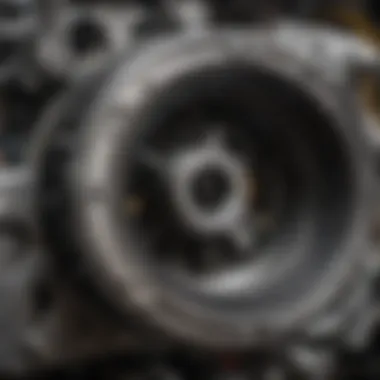
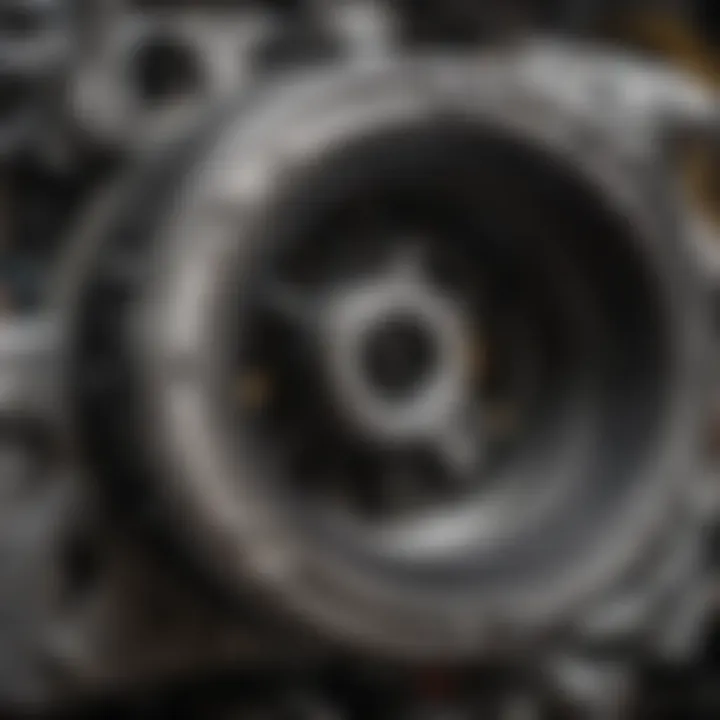
By adhering to these steps, the installation process becomes efficient and increases the chances of gasket longevity.
Post-Installation Considerations
Once the installation is complete, several post-installation considerations are essential for optimal performance:
- Leak Testing: After the engine runs, inspect for any leaks. Addressing minor leaks early can prevent significant damage.
- Monitoring Performance: Pay attention to changes in engine performance, such as unusual sounds or decreased efficiency. Such indicators may signify issues with the gasket.
- Periodic Inspections: Schedule routine checks on the gasket’s condition, particularly in high-vibration environments. Regular assessments can identify wear and tear before they become significant problems.
Common Issues with Gaskets
Gaskets serve a crucial function in maintaining the integrity and efficiency of diesel engines. Understanding common issues related to gaskets is essential for anyone maintaining diesel engines. It allows for early detection and mitigates destructive failures that can lead to costly repairs. This section will delve into the signs of gasket failure and the potential consequences these failures can bring.
Signs of Gasket Failure
Identifying the signs of gasket failure early can save both time and money. Here are some common indicators:
- Coolant Leaks: One of the most noticeable signs is the presence of coolant leaking from the engine. If you notice puddles forming under your engine or find signs of coolant pooling around the gasket areas, it may signify a failing gasket.
- Oil Leaks: Similar to coolant, oil leaks are another red flag. If you spot any oil accumulating beneath your engine, a damaged oil pan or cylinder head gasket may be to blame.
- Overheating Engine: A gasket that has failed can disrupt the flow of coolant, leading to overheating. An overheated engine can create a cascade of problems if not addressed promptly.
- Poor Engine Performance: If the engine starts running rough or losing power, it may be due to air seeping into the combustion chamber. This could be a direct result of a compromised gasket.
- Exhaust Smoke: Unusual smoke or steam from the exhaust can indicate a failing head gasket, especially if it has a sweet smell, which can suggest coolant is entering the combustion chamber.
It is advisable to regularly inspect for these signs to address any potential issues before they escalate into major failures.
Consequences of Failure
Failing gaskets can have significant implications for both engine performance and longevity. The consequences of gasket failure can be severe and multifaceted:
- Increased Repair Costs: If a gasket failure leads to engine overheating or other serious issues, it can result in expensive repairs. Components potentially damaged by coolant leaks or increased pressure can be costly to replace.
- Loss of Engine Efficiency: A compromised gasket can diminish overall engine performance, leading to decreased fuel efficiency. This inefficiency results in increased operating costs over time.
- Engine Damage: Prolonged gasket failure can cause severe damage to the engine components, including warped heads or a cracked block. Repairing or replacing these components can be prohibitive.
- Safety Risks: An overheated engine can lead to sudden breakdowns, posing safety risks while operating machinery, especially in agricultural settings where reliable performance is crucial.
"Preventative maintenance is key to avoiding gasket failure, ensuring the longevity and efficiency of diesel engines."
Maintenance and Care for Diesel Gaskets
Maintenance of diesel gaskets is critical to ensure optimal engine performance and longevity. Regular care can prevent serious issues that may arise from neglect or improper handling. Proper maintenance of gaskets not only enhances engine efficiency but also extends the operational life of vital components. This section focuses on the importance of consistent maintenance, the routines, and the identification of potential issues before they develop into major failures.
Routine Maintenance Practices
Routine maintenance practices for diesel gaskets serve as preventive measures. Implementing these practices can help avoid common gasket problems, including leaks and misalignments. Important steps to consider include:
- Regular Inspection: Check gaskets for visible signs of wear, such as cracking or deformation. A thorough inspection should be part of maintenance schedules.
- Cleaning: During maintenance, ensure the areas around the gaskets are clean. Dirt and debris can create problems during installation or lead to premature gasket failure.
- Proper Torque Specifications: When reassembling engine components, adhere to the manufacturer’s torque specifications. This ensures a proper seal and reduces the risk of leaks.
- Use Appropriate Lubricants: Some gaskets may require a specific type of lubricant during installation. Using the wrong product can lead to deterioration or ineffective sealing.
- Keep Records: Document all maintenance activities. This helps in tracking the condition of gaskets over time and informs future maintenance; it also acts as a reference if issues arise.
Identifying Wear and Tear
Identifying wear and tear on diesel gaskets is essential for maintaining engine health. Early detection can mitigate severe damage to the engine components. Here are some signs that may indicate gasket wear:
- Oil Leaks: If oil is found around the gasket area, it may signal a failure.
- Coolant Loss: A drop in coolant levels without apparent leaks elsewhere can suggest a gasket failure, especially under high pressure.
- Engine Overheating: This could indicate a breach in the head gasket. When coolant leaks into combustion areas, overheating often follows.
- Excessive Exhaust Smoke: Blue or white smoke can imply oil leaks into the combustion chamber due to failed gaskets.
- Poor Engine Performance: Loss of power or rough engine operation suggests underlying issues, possibly related to gaskets.
Regular inspections and maintenance can significantly reduce the risks associated with gasket failure.
By following these maintenance practices and monitoring for signs of wear, diesel engine owners can better protect their investments. Effective maintenance not only prolongs the life of gaskets but also the entire engine system. Incorporating these steps into regular maintenance routines will ensure engines remain in optimal condition.
Finding Quality Detroit Diesel Gaskets
Finding quality Detroit Diesel gaskets plays a critical role in ensuring the smooth operation and longevity of diesel engines. This section will present the essential factors to consider when purchasing gaskets, emphasizing the importance of understanding the suppliers and brands available in the market, as well as balancing cost with quality to make informed decisions. Selecting the right gaskets can significantly impact engine performance, efficiency, and the prevention of failures that lead to costly repairs and downtime.
Evaluating Suppliers and Brands
When searching for quality Detroit Diesel gaskets, the credibility of suppliers and brands is essential. An effective evaluation begins with researching each supplier's history and reputation within the industry. Look for brands that specialize in diesel engines and have established a strong presence in the market.
Factors to consider include:
- Certifications: Verify if the suppliers have relevant certifications that ensure they meet industry standards.
- Customer Reviews: Customer feedback can provide valuable insight into the reliability of a supplier's products and their service quality.
- Experience: Consider suppliers who have extensive experience in manufacturing or supplying gaskets specifically for Detroit Diesel engines.
Always reach out to suppliers with inquiries related to the specifics of their products, warranties, and return policies. A direct line of communication can often reveal a lot about the supplier's commitment to quality and customer satisfaction.
Cost vs. Quality Considerations
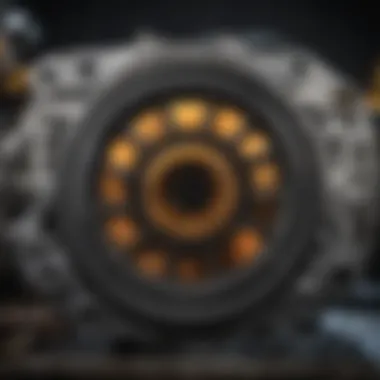

Cost is an important factor when determining the right gaskets for your diesel engines, but it should not overshadow the quality. Inexpensive gaskets may seem like an attractive option at first, but they often come with drawbacks such as reduced durability and performance. It might lead to severe consequences later.
Some critical points to think about include:
- Material Quality: Higher quality materials usually translate to better performance and longevity. Investing in gaskets made from premium materials can be cost-effective in the long run due to reduced maintenance and replacement needs.
- Brand Trust: Well-known brands may come at a higher price, but they often provide a guarantee of quality and reliability, which can save money over time.
- Lifecycle Costs: Consider the overall lifecycle cost of gaskets rather than just upfront prices. Assessing how often gaskets need to be replaced and their impact on engine performance may yield different financial conclusions.
In the end, the best approach is to strike a balance between cost and quality. Seek gaskets that fit within budget parameters while still ensuring excellence in materials and performance, thus safeguarding the engine's efficiency and longevity.
Impact of Gaskets on Engine Longevity
Gaskets play a vital role in the durability and efficiency of diesel engines. Understanding the impact of gaskets on engine longevity extends far beyond basic component knowledge. It is about recognizing how these seemingly small parts contribute significantly to the overall lifespan and performance of the engine. By ensuring proper sealing, gaskets aid in maintaining pressure, reducing wear, and minimizing the potential for catastrophic failures.
Understanding Engine Mechanics
To appreciate how gaskets influence longevity, one must first understand engine mechanics. A diesel engine operates through a cycle of intake, compression, power, and exhaust. Each stage relies on precise sealing to prevent leaks and maintain optimal pressure. For instance, the cylinder head gasket seals the combustion chamber, allowing the engine to achieve high compression ratios without losing power. This seal also guards against coolant and engine oil mixing, which can lead to severe engine damage.
The meticulous relationship among engine parts makes gaskets indispensable. When gaskets are compromised, it can disrupt the entire engine function. The resultant pressure loss, if unaddressed, can lead to inefficiencies and accelerated wear. Thus, regular monitoring and maintenance of gaskets are essential for sustaining engine mechanics.
Gaskets' Role in Preventing Damage
Gaskets are not just barriers; they act as protective shields for engine components. Their primary function is to prevent escaping fluids and gases. When installed correctly, gaskets help avoid leaks, which can be detrimental to engine performance. For example, a failing oil pan gasket can lead to oil leaks, decreasing lubrication and increasing friction, which accelerates engine wear.
Emission control is another critical area where gaskets contribute to longevity. Exhaust gaskets minimize harmful emissions from escaping, ensuring that the engine runs efficiently and remains environmentally compliant. Such leaks not only affect performance but can also cause compliance issues with regulations.
In addition to preventing leaks, quality gaskets can withstand extreme heat and pressure. This resilience is crucial in a diesel environment, where temperatures can escalate rapidly. High-quality gaskets made from advanced materials, like composite or metallic constructions, are designed to endure these conditions without compromising their sealing ability.
A good gasket not only seals well but also enhances engine life by mitigating the risk of leaks, overheating, and damage.
In summary, gaskets are fundamental to maintaining engine longevity. They are central to engine performance, ensuring efficiency and reliability. Without them, the engine's very mechanics could falter, leading to costly repairs or premature failures. Therefore, understanding their role and ensuring their adequate condition is paramount for any diesel engine enthusiast.
Gasket Innovations and Technological Advances
Gasket innovations play a crucial role in the advancement of diesel engine technology. As engines become more sophisticated and demanding in performance, the need for high-quality gaskets grows. This section explores how innovation affects gasket design and functionality, ultimately enhancing engine efficiency and reliability.
New Materials and Techniques
The emergence of new materials in gasket manufacturing is a key factor in improving engine performance. Gaskets once made primarily from rubber and cork have evolved to include advanced composites and specialized metals. For example, new polymer blends offer better heat resistance and flexibility, which are essential in high-temperature environments. These materials reduce the risk of leaks and extend the lifespan of gaskets significantly.
Additionally, innovative manufacturing techniques, such as precision machining and laser cutting, have refined gasket shapes and sizes. This leads to tighter seals and increased durability. By utilizing technology like computer-aided design, manufacturers can ensure a more precise fit, thus optimizing engine efficiency.
Benefits of New Materials and Techniques:
- Enhanced resistance to heat and pressure
- Improved flexibility and sealing
- Greater longevity and reliability
- Reduced likelihood of gasket failure
Future Trends in Gasket Design
Looking ahead, the future of gasket design seems promising. As diesel engines face stricter emissions regulations and fuel efficiency standards, gasket technology needs to adapt. Sustainability is becoming an important factor, with manufacturers exploring biodegradable or recyclable materials that do not compromise performance.
Trends indicate a shift toward smart gaskets embedded with sensors to monitor engine conditions. These gaskets could provide real-time data on pressure, temperature, or potential leaks. Such technology would allow for proactive maintenance, decreasing downtime for equipment in agricultural operations.
Furthermore, advancements in nanotechnology could lead to materials that enhance the performance of gaskets significantly. These innovations will continue to shape the future landscape of diesel engines, making gaskets not just components but integral parts of engine management systems.
"Innovation in gasket technology contributes directly to engine performance, longevity, and environmental sustainability."
By staying informed on these innovations, agricultural professionals can make better choices regarding gasket selection, leading to more efficient and reliable machinery. The focus should go beyond just buying parts. Understanding the technological advancements will help in maintaining optimal diesel engine performance.
Ending
In this article, the exploration of Detroit Diesel gaskets highlights their critical role in the operation and longevity of diesel engines. Gaskets are not merely components; they serve a larger purpose by ensuring that various engine parts are tightly sealed, preventing leaks and maintaining performance efficiency. The importance of understanding gaskets is multifaceted, as it involves knowledge of material types, installation techniques, and common issues that may arise.
Summary of Key Points
- Understanding Gaskets: Gaskets form a crucial part of diesel engines, playing a vital role in sealing gaps between components and ensuring optimal engine performance.
- Types of Gaskets: Various types, including cylinder head gaskets, oil pan gaskets, and exhaust gaskets, are designed for specific applications and needs.
- Material Composition: Gaskets are made from materials such as metallic, non-metallic, and composite substances. Each material type offers different benefits based on the conditions they face.
- Installation Process: Proper installation is essential for durability. This includes pre-installation checks and following a systematic installation process.
- Maintenance Practices: Regular inspections and maintenance can prolong the life of gaskets and prevent failures that can lead to costly repairs.
- Quality Assessment: When selecting gaskets, it is important to evaluate suppliers and understand the balance between cost and quality to achieve the best performance.
- Technological Advances: Innovations in gasket design and material science continue to evolve, enhancing durability and functionality.
Final Thoughts on Gasket Selection and Maintenance
Selecting the right gaskets for a diesel engine involves careful consideration of factors like engine specifications, operating conditions, and intended application. One must also prioritize maintenance to ensure that the gaskets perform effectively and last longer.
Investing time in understanding gasket properties and adhering to recommended maintenance practices can yield significant benefits. A well-chosen, properly installed, and well-maintained gasket contributes not only to engine performance but also to overall durability and efficiency.
In summary, the integration of knowledge regarding Detroit Diesel gaskets leads to informed decision-making, benefiting both agriculture professionals and engine enthusiasts. This knowledge not only enhances operational efficiency but also promotes a culture of preventive maintenance within the field.



